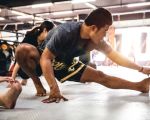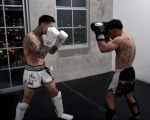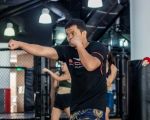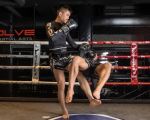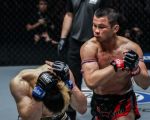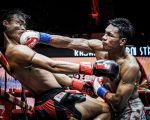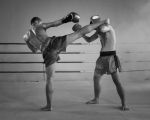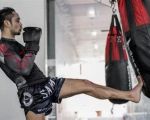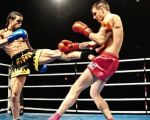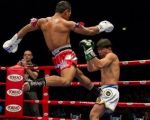Muay Thai Striking Techniques Explained: Master the Art of 8 Limbs
- 1. Overview of Muay Thai Striking
- 2. Key Striking Techniques in Muay Thai
- 3. The Importance of Footwork in Muay Thai
- 4. Muay Thai Combinations for Effective Strikes
- 5. Training Tips for Improving Muay Thai Strikes
1. Overview of Muay Thai Striking
Muay Thai, known as the "Art of 8 Limbs," is a martial art that uses punches, kicks, elbows, and knees, making it one of the most powerful striking arts in the world. Unlike other striking sports, Muay Thai emphasizes the use of every part of the body to attack and defend, providing fighters with versatility and adaptability in any combat situation.
For example, take the story of a fighter named Tim, who transitioned from boxing to Muay Thai. Initially, he struggled with using his elbows and knees effectively. Over time, with focused training, Tim learned to incorporate these weapons into his arsenal, greatly increasing his offensive range and control in the ring.
2. Key Striking Techniques in Muay Thai
Muay Thai striking techniques are vast, but there are several key moves that every practitioner must master to become effective in the sport.
1. The Roundhouse Kick: This is one of the most iconic and powerful strikes in Muay Thai. It involves rotating the hips to deliver a kick to the opponent’s legs, body, or head. The key to this strike is generating power from the hips and using the shin to land the blow.
2. The Teep (Push Kick): Often compared to a jab in boxing, the teep is used to maintain distance, control the pace of the fight, and disrupt your opponent’s movements. When executed correctly, it can be used to push an opponent off balance or to set up other strikes.
3. Elbows and Knees: These short-range weapons are devastating when used in close-quarters combat. Whether it's a horizontal elbow to the opponent’s temple or a knee to the midsection, these strikes are efficient and can cause significant damage in a short amount of time.
3. The Importance of Footwork in Muay Thai
While the striking techniques in Muay Thai are crucial, effective footwork is what allows a fighter to land those strikes with precision and power. Good footwork helps you move in and out of range, avoid strikes, and control the distance between you and your opponent.
A fighter's ability to pivot, move sideways, and step in at the right moments often determines the outcome of a match. Proper footwork is vital for setting up strikes like the roundhouse kick and teep, and for evading counters. Without strong footwork, even the best striking techniques can fall short.
Take Sarah, for example. She initially had difficulty getting in range to land strikes against taller opponents. After focusing on her footwork and learning how to close the distance quickly while staying balanced, she started landing strikes more effectively and controlling the fight with her movement.
4. Muay Thai Combinations for Effective Strikes
In Muay Thai, combinations are essential for creating openings and overwhelming your opponent. Rather than relying on a single strike, experienced fighters combine various strikes to keep their opponent guessing and to set up more powerful shots.
For instance, a common combination is the “teep, cross, hook, roundhouse kick.” The teep is used to gauge distance and set up the following strikes. The cross and hook are thrown to break through the opponent’s guard, and the roundhouse kick comes in to finish the combination. The beauty of Muay Thai lies in its fluidity and creativity when chaining strikes together.
5. Training Tips for Improving Muay Thai Strikes
To excel at Muay Thai striking, consistency in training is key. Here are some tips to improve your technique:
- Shadow Boxing: This helps you focus on technique without distractions and perfect your movement and combinations.
- Pad Work: Practicing with pads allows you to apply your techniques in a dynamic environment and improve your accuracy and power.
- Conditioning: Building strength and stamina is essential for delivering powerful strikes throughout the duration of a fight.
Consider working with a coach or joining a Muay Thai class to get personalized feedback and push your training to the next level. It's not just about striking—it’s about developing an overall strategy that incorporates technique, timing, and conditioning.














